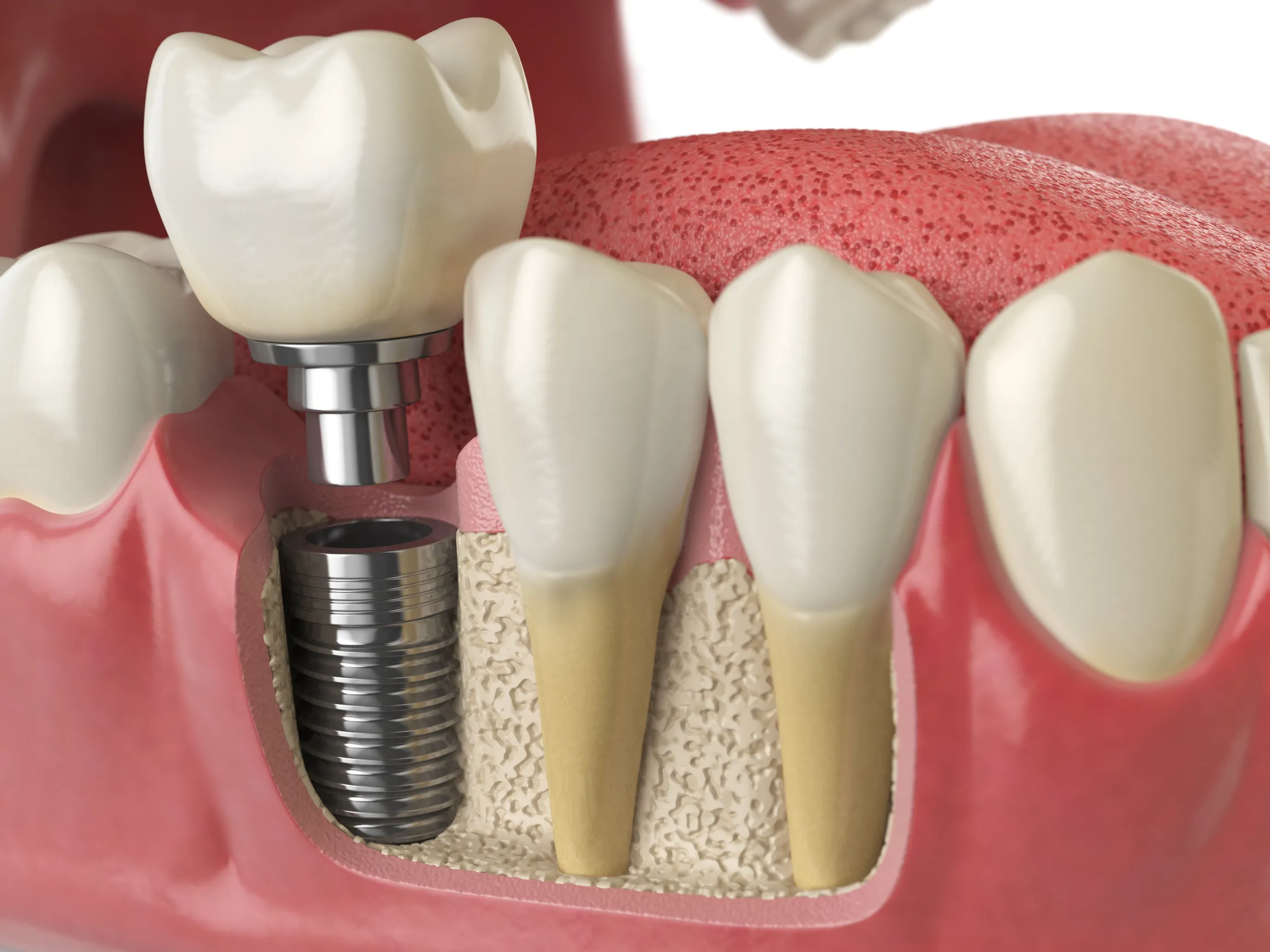Dental Implants
Are you considering dental implants?
Dental Implants
Are you considering dental implants?
What are dental implants?
Dental implants are used to replace a missing tooth or teeth. They are small metal screws (usually made of titanium, a titanium alloy or a ceramic like zirconia) that are placed into the jawbone to act like artificial tooth roots. Over time, they fuse to the jawbone and a restoration (false, yet natural-looking tooth) is fitted on top. Dental implants can be used to replace a single tooth or many teeth.


How long will dental implants last?
Provided you look after your mouth, maintain good oral hygiene and see your dentist regularly, dental implants can last many years. Dental implant Treatment is akin to having a hip replacement – you would expect the artificial hip to last 10-20 years and then it might need re-treating. Dental implants require a similar approach. It is important that you look after your dental implants for the very best, long-lasting results.
Who is suitable for dental implant treatment?
Success rates are very good in the UK and can be as high as 95% – but it is vital that you follow your dental team’s oral hygiene advice and that you attend all your review appointments for professional cleaning and inspection in order to reduce the risk of problems.
Please see prices for implants.
Most adults with good dental and general health will be suitable for dental implants. However, every case is different so it’s important to speak to your dentist.
Young people whose mouths and jawbones are still growing are usually not suitable. Anyone who smokes or drinks heavily may also not be suitable for treatment. These habits increase the risk of problems with treatment so some dentists will wait until the behaviours are changed before placing dental implants. In addition, people who have gum disease may need to improve the health of their gums before dental implants would be considered. Those who are more susceptible to gum disease will be at higher risk of developing problems, both in the short and long term, with their dental implant.
All you need to do is visit your dentist and ask them about treatment. They will perform a thorough assessment of your mouth and discuss your treatment options with you. Planning for dental implants usually involves a three-dimensional (3D) X-ray called a CT or CBCT scan. This allows your dentist to choose the most suitable length, width and type of dental implant for you. If they do not personally offer dental implant treatment they might refer you to a colleague.






